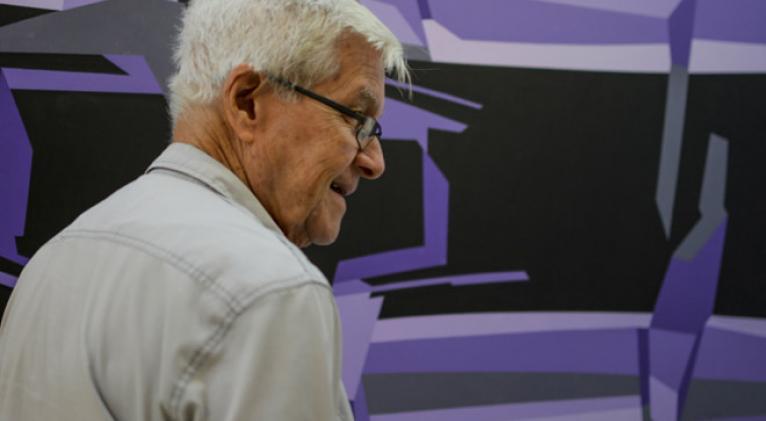Pedro de Oraá on our memory
especiales

Pedro de Oraá was one of the greatest masters of abstract art in Cuba. Much of his work wallowed in geometrical compositions, a feast of pure forms indifferent to, at least in its most radical approach, metaphorical involvement…The empire of the abstraction.
But he loved to put into question that statement as well. “I don’t believe we can talk about absolute abstractionism in art —he used to say—, my work can also suggest a sort of game that responds to my own interest.” And he added: “Craftwork, which is also quotidian, naturally embraces those constant: there we have the bedspreads made by our grandmothers with pieces of fabric, full of colors and texture.”
But in the provocative form of his work, the master boasted great stylist vocation. Concepts, impulse, formal continuities. Units of meanings, works that are linked or interact not only from the lines, while shades are presented here and there.
His creation does not disdain the decorative sense, which was never innocent, though. Pedro de Oraá always thought on his creative exercise. In fact, he was a mastermind of culture as a whole.
The master’s physical and intellectual vitality favored one of the longest and most interesting itineraries of visual arts in Cuba. He was member, since the 1950s, of very important groups in Cuban plastic arts. And despite very specific interests, he showed an unparalleled coherence in his statements. His style was perfectly recognizable. He actually developed it. His lyric transcended and survived forgotten trends.
Besides being a painter and a sculptor, Pedro de Oraá was a poet, narrator, essayist, art critic, and designer. He was paramount for Cuban culture. He once said: “I have come to the conclusion that the society somehow rejects multi-faceted artists these days.”
Pedro de Oraá’s work, highly appreciated, is a strong statement to such alleged intolerance.
Translated by Sergio A. Paneque Díaz / CubaSí Translation Staff














Add new comment